Dennis Oland defence challenges Crown over possible 'tainting' of expert evidence
Dispute at murder trial over forensic toxicologist's opinion about alcohol found in Richard Oland's urine
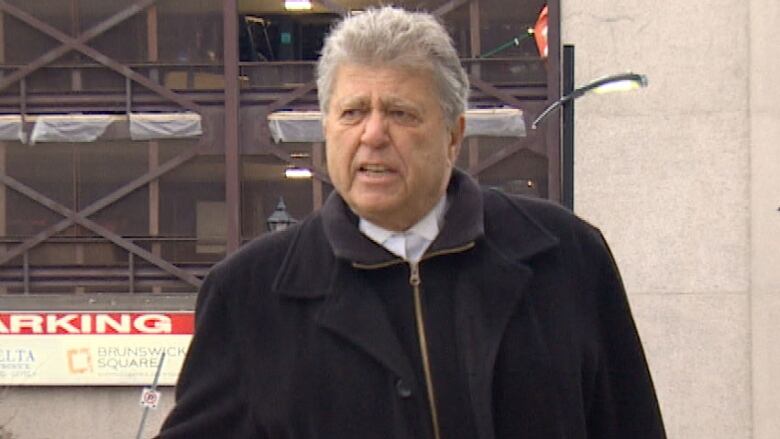
DennisOland'sdefence lawyer accused the Crown Thursday ofimproperly providing information to a forensic toxicologist that risked "tainting" his expert opinion about the alcohol foundin Richard Oland's bodyafter he was killed.
Alan Gold introduced emails into evidenceat his client's murder retrial from two prosecutorsto Dr. Albert Fraser regarding his 2011 report on the urine, blood and eye fluid samples taken from the victimduring the autopsy.
Fraser hadfound a small amount of alcohol in the urine, but none in the blood orthe clear gel in the eyeball that fills the space between the lens and the retina,called vitreous humour.
"The low concentration of ethyl alcohol inpost-mortemurine along with negative ethyl alcohol findings inpost-mortemblood and vitreous [humour] indicates alcohol consumption several hours prior to death,"Fraser's report concluded.
- On mobile?Follow the live blog here
In emailsbetween 2014 and 2017, Crown prosecutors Patrick Wilbur and Jill Knee both told Fraser there wasno evidenceOlandhad consumed any alcohol on the day of his death and asked him about other possible explanations.
Frasersubsequently provided three other possibilities, which he also testified to on Thursday, under questioningby Knee.
"I think if Iwere to do it again, Iwould say, 'It's consistent with'" alcohol consumption several hours prior to death, rather than "indicates," said Fraser.
Although alcohol consumption would be the most common explanation, a few doses of cough syrup containing alcohol could also produce a positive result, he said.
Alcohol can also occasionally formin the bladder of diabetics, and body decomposition can sometimes endogenously produce alcohol, he said.
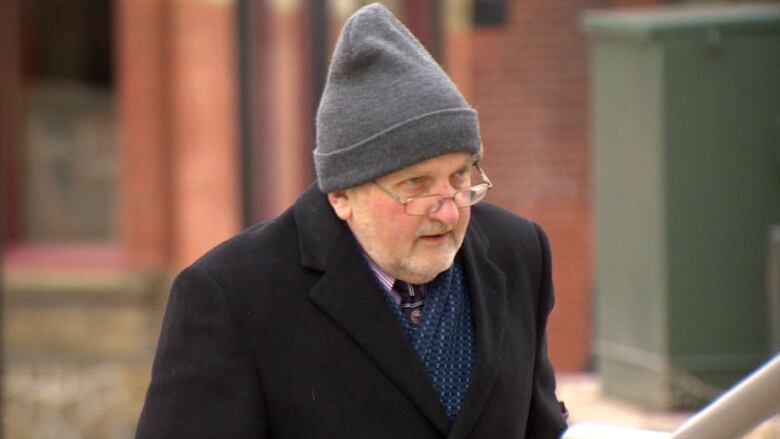
But Fraser maintained alcohol consumption was the most likely explanation.
The court has not heard any evidence about whether Olandconsumed any cough syrup, there was no evidence of diabetesand thepathologist who performed the autopsy testified earlier this week he noted no signs of decomposition, such as discolouration of the skin.
During cross-examination Thursday, Gold suggested the Crown should not have told Fraser about the lack of evidence of Oland having consumed alcohol.
That's exactly the kind of tainting, biasing informationthat might subconsciously influence an expert witness.- Alan Gold, defence lawyer
"Do you agree with me sir that as an expert, that kind of fact, alleged fact, which could possibly taint your opinion, should never have been given to you?"he asked Fraser. "You did not need to know that to form your expert opinion did you?"
"Absolutely, there's no relevance to my investigation at all," replied Fraser, who is now retired.
"That's exactly the kind of tainting, biasing informationthat might subconsciously influence an expert witness, is that correct sir?" asked Gold.
"I would say it's possible, yes," said Fraser.
On redirect,Knee asked Fraser whether any information she or Wilbur told him affected his report or opinion. He said it did not.
Suggestion of tainting 'totally inappropriate'
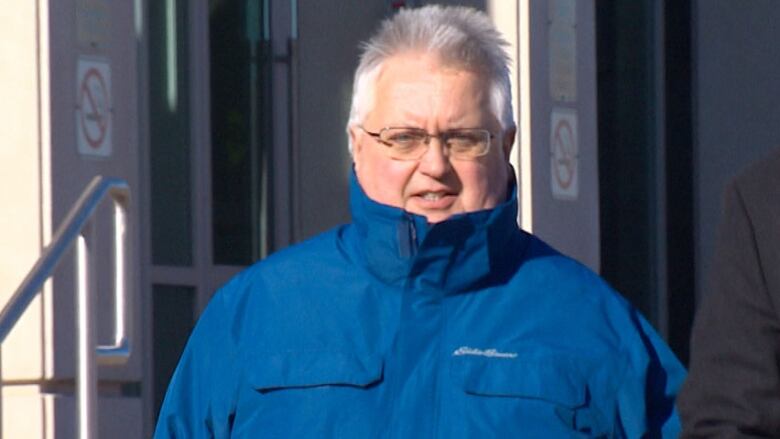
As soon as Fraser was finished testifying, lead Crown prosecutor P.J. Veniot told the court he found Gold's suggestion of any attempts to taint Fraser's opinion"totally inappropriate."
He argued the prosecutors' emailswere "not much different from what Mr. Gold was trying to get Dr. Fraser to agree to in his questioning 'What about this?' and 'What about that?'"
Gold countered, saying there have been many decisions dealing with expert evidence that "have made it clear you should not give factual information to an expert that is unrelated to their opinion because they're human, it may influence their opinion and it's improper to do so."
"Whether it was done intentionally or not, Iin no way suggested it. Ireferred to the taining effect of the information," he told Court of Queen's Bench Justice Terrence Morrison.
Morrison said experts are often asked to "make certain assumptions Whether those facts are proven true at trial or not is a different situation."
His respect for Knee as an officer of the court, he added, "has not been diminished in any way whatsoever."
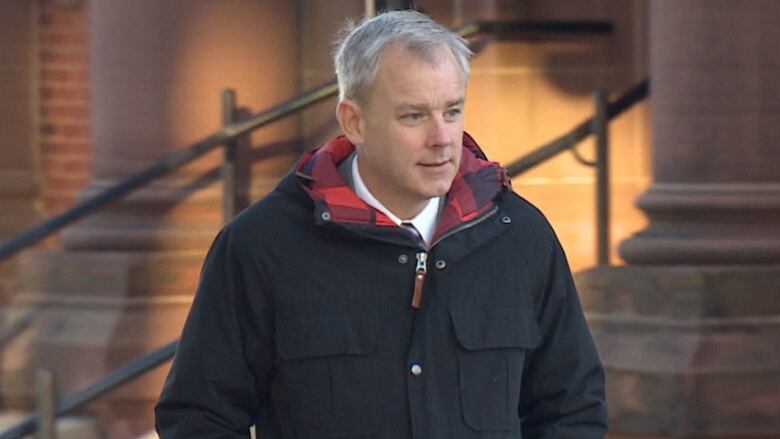
DennisOland, 50, is being retried for second-degree murder in the bludgeoning death of his multimillionaire father.
A jury found him guiltyin December 2015, but the New Brunswick Court of Appeal overturned the conviction in October 2016 and ordered a new trial, citing an error in the trial judge's instructions to the jury.
Oland was the last known person to see his father alive when he went to visit him at his office at 52 Canterbury St., on July 6, 2011, around 5:30 p.m.
The body of the 69-year-oldwas discovered in the office the next morning, lying face down in a large pool of blood. Hehad suffered 45 sharp- and blunt-force injuries to his head, neck and hands.
- Dennis Oland murder retrial focuses on forensic evidence
- Richard Oland survived only 'minutes,' son's murder trial hears
- Forensic officer gave in to superiors who 'wished to view' Oland's body
No weapon was ever found and the only item missing from the office was the victim's cellphone,which last pinged off a cell tower inRothesay, near theRenforthwharf whereOlandhad stopped on his way home from visiting his father around the time he would have been there.
Earlier in the day, while the victim was at work, the cellphone had connected with a tower near his uptown Saint John office.
Gold was laying the groundwork Thursday for the defence's position that RichardOlandmight have left his office with his cellphone to have a drink after his son's visit.
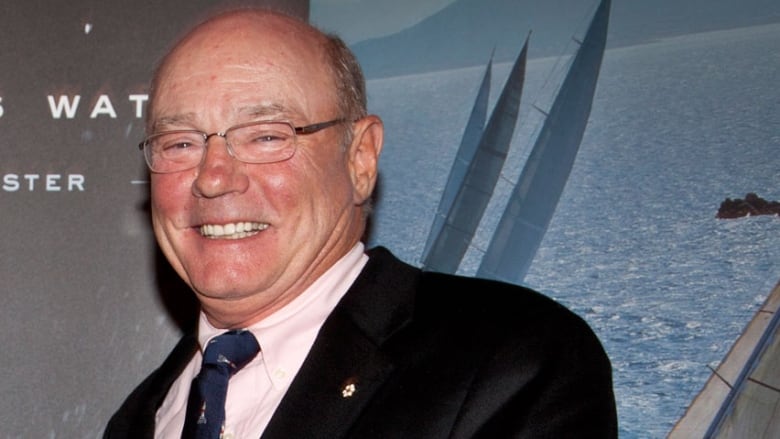
He asked the forensic toxicologistif the alcohol results were consistent withOlandconsuming alcoholan hour before he was killed.
It would be more than an hour, said Fraser, noting it takes about three hours for the blood results to come back negative.
What ifOlandonly had a few sips? Gold asked. It still has to be processed by the body, replied Fraser.
Gold persisted. He suggested "some previous historical consumption of alcohol is the obvious conclusion to reach in this case," given the facts. Fraser agreed.
Richard Oland'ssecretary Maureen Adamson previously testified she did not see him drink any alcohol on July 6, 2011, the day police believe he was killed, and he did not keep any alcohol in the office, other than an old can of Alpine beer.
She did not see him leave the office all day and she left only briefly over the lunch hour that day to pick him up a pizza and can of Coke, she said.
Several Crown witnesses, however, including Adamson, testified there was a "vile" odour at his office when his body was found.
The videotaped statement Dennis Olandgave to police the day his father's body was discovered was also played in court Thursday.
The retrial is scheduled to resume Tuesday at 9:30 a.m.












_(720p).jpg)


 OFFICIAL HD MUSIC VIDEO.jpg)
.jpg)



























































































